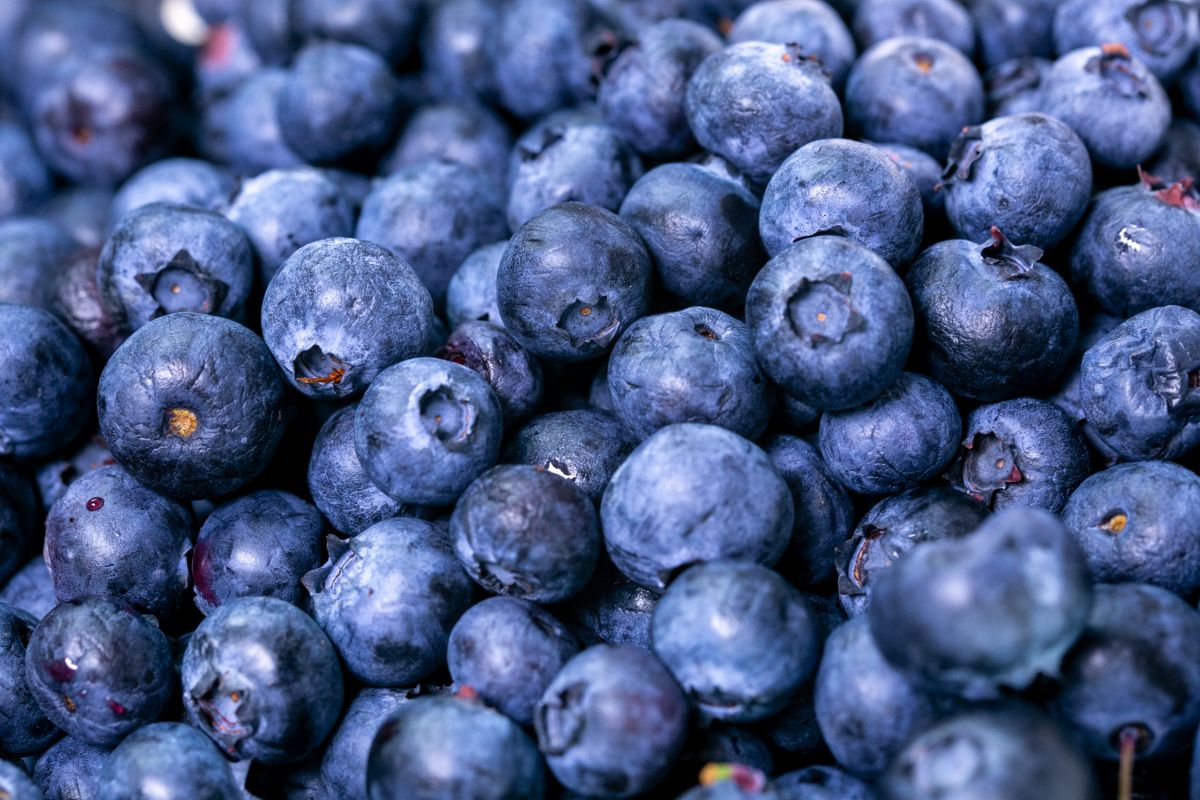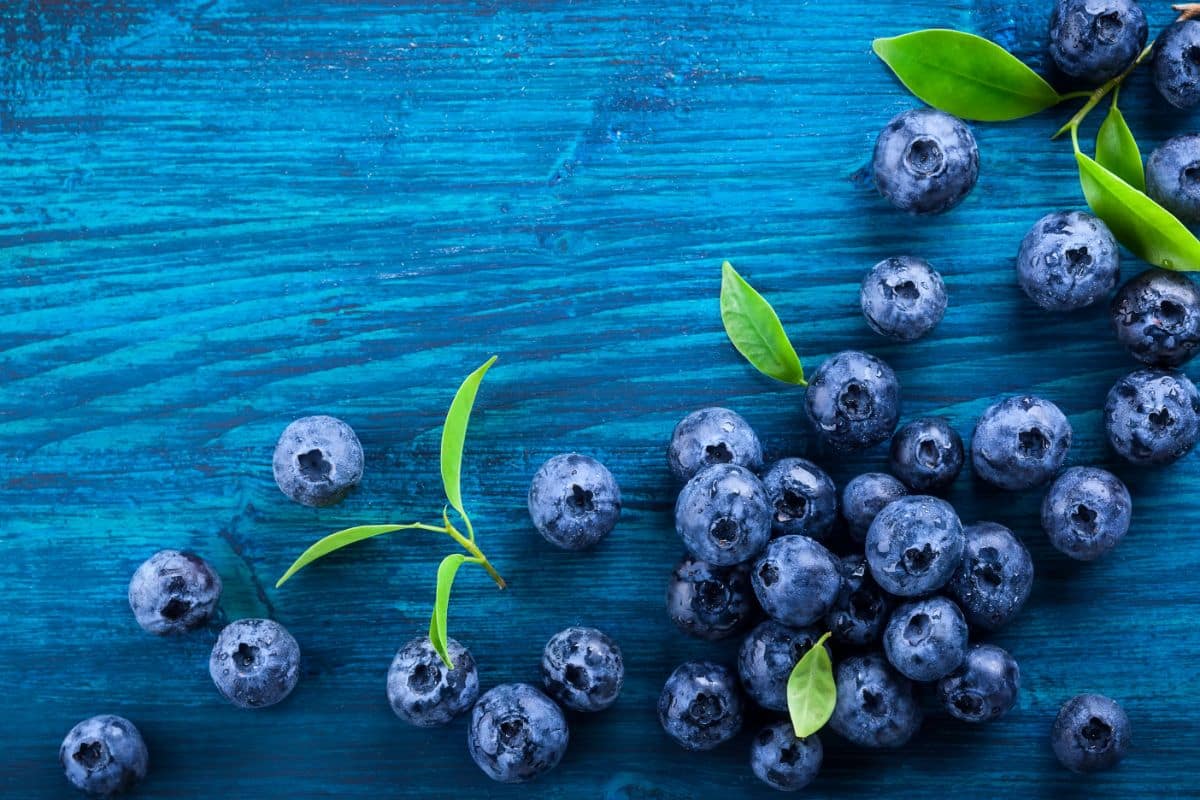Out of all the fruits on the market, it is certainly true that blueberries are held up as some of the most popular – with countless people enjoying them all across the world.

Used in all manner of dishes and cuisines, they are certainly a versatile fruit, and one that has been shown to have numerous health benefits for the consumer.
One thing you might not be sure of though, is the actual physicality and growing cycle of the blueberry. So this begs the question: how exactly do blueberries grow in the first place, and do they have seeds?
Where Do Blueberries Come From?
Blueberries are a widely found form of perennial plant, which are characterized by their blue/purple small fruits that grow on the leaves.
Belonging to the section Cyanococcus, and possessing the genus vaccinium, they are closely linked to, and categorized with other berries – such as cranberries, bilberries, huckleberries, and Madeira blueberries.
All of the major blueberry bushes are native to North America, however since the 1930s, blueberries have been widely grown throughout Europe too – only increasing their global reach and popularity.
Do Blueberries Contain Seeds?
Something that might come as a surprise for many, is that yes, blueberries actually do have seeds.
Despite the common misconception that the fruit themselves are actually the seeds of the blueberry plant, the seeds themselves are actually found within the fruit – however they are so small that they pass almost unnoticed.
How Many Seeds Do They Have?
Generally speaking, each blueberry has roughly anywhere from 10-20 seeds, and while small and hard to see, these are pivotal for growing new blueberry plants.
The number of seeds generally varies, depending on the age of the plant itself, and the position of the fruit on the branches.
There are two types of blueberries – namely low bush and high bush blueberries – and the positioning on the tree not only determines the size of the blueberry, but the number of seeds therein.
Low bush blueberries are generally smaller, and tend to have around 10 seeds within them, whereas high bush blueberries are larger, and tend to have nearer 20.
What Are The Characteristics Of Blueberry Seeds?
When it comes to blueberry seeds, there are specific characteristics that have come to define them, and set them apart from the seeds of similar fruits.
Firstly, they are incredibly small, and as such can usually be eaten without even being noticed.
They are also less defined within the pulp of the fruit as other seeds, and as such they are not usually visible, even if you bit into a blueberry and looked for yourself.
Thirdly, the seeds themselves are completely safe to be eaten and swallowed, which is why there has not been a greater level of fuss made surrounding their presence within the fruit – or indeed why seedless variants have not been readily sold in supermarkets.
If they were not safe to consume, then there would be far more buzz around the dangers, and seedless variants would undoubtedly be engineered.
Why Aren’t The Seeds Noticeable?
While the seeds of most fruits are more than noticeable, and can often require us to pick them out during eating – such as in grapes, apples, and other common fruits – the blueberry has seeds that are pretty hard to detect, let alone see.
But why exactly is this?
Well, the fact of the matter is that, due to the fact that blueberries are so small, the seeds themselves need to be smaller to fit inside.
And with this fact in mind, it just so happens that we are not able to taste them when we are eating blueberries.
Another fact is that the blueberry seeds themselves are generally extremely soft, and as such we usually chew them up with the rest of the pulp during eating.
Generally speaking, it is usually only the overripe blueberries that have noticeable seeds, but these are not usually sold in stores as commonly.
The easiest way to see overripe blueberries would be out on a bush in the wild, and if you ate one, you would notice the seeds much more clearly than regular store bought varieties.
Are They Safe To Eat?
As we touched on in a previous section, blueberry seeds are not only harmless when eaten and swallowed, but they are also relatively healthy, and help to make the blueberry an overall beneficial and nutritious fruit.
The seeds of the blueberry are also easy for us to digest – due to the fact that they are small and soft – and are also easily broken down by our digestive systems.
This differs greatly from other seeds – both from fruit and plants – which are often more difficult to digest, and which can often be present in our stool when we excrete waste.
This is a far cry from other fruits – such as plums, cherries, and peaches – which all have poisonous seeds or stones, and should not be eaten under any circumstances.
This alone shows the sheer diversity of the foods that we readily consume, and how little we actually know as consumers about the differences therein.
What Are The Health Benefits Of Blueberries?
The one piece of information that has become common knowledge in recent times – thanks to our greater understanding of our diets, and the impact of the food we eat on our health and wellbeing – is that blueberries are not only healthy, but widely considered to be a ‘superfood’.

As such, there are many benefits that consuming blueberries can have towards your wider health and wellbeing.
Low Calories/High In Nutrients
Firstly, blueberries are very low in calories, but exceptionally high in nutrients – making them a great part of any balanced diet.
Blueberries are rich in vitamin K, vitamin C, manganese, and fiber – not to mention being around 85% water, making them a great source of hydration too.
Potent Antioxidants
Blueberries are also potent antioxidants, something that has seen them heralded as the superfood of our times.
Antioxidants are important when it comes to tackling degenerative conditions – most of which are associated with aging – and it is in fact the ‘oxidation’ of our cells that causes our bodies to break down.
As such, it is theorized that blueberries can help to combat the signs of aging, as well as reducing the likelihood of serious diseases such as cancer.
Controlling/Protecting Cholesterol
Blueberries are also thought to help protect the cholesterol in our blood from becoming damaged.
Cholesterol can be a tricky one to understand, and there are indeed good and bad varieties of cholesterol in our blood – both of which can play a major role in our health.
Good cholesterol is known as HDL, whereas bad cholesterol is known as LDL.
When this LDL becomes oxidized, then this can be one of the major inciting factors for heart disease and similarly related conditions – many of which can prove fatal if sufficient efforts are made.
Lowering Blood Pressure
It is also thought that blueberries could play a role in naturally lowering blood pressure – something that could lessen the risk of heart disease.
However, the research for this is still in development, and while initial findings have been positive, there is still a lot of work that needs to be done before this claim can be considered 100% accurate.
Maintaining Brain Function
It is also thought that blueberries are good for the brain – specifically caring for and maintaining the part of our brains that control memory.
As we age, these parts of our brain begin to degrade naturally, which is why we sometimes get forgetful, however, it is thought that by introducing blueberries into the diet, you can stave off the signs of memory loss before they rear their ugly heads.
This is once again down to the antioxidants, which help fight off natural degradation on a body-wide scale.
Avoiding Type 2 Diabetes
It is also thought that the anthocyanins within blueberries – that is, a class of molecules also known as flavonoids – are good at leveling off blood sugar spikes, which in turn helps us to maintain positive blood sugar levels, and avoid type 2 diabetes.
This research is in its infancy still, but holds great promise for those with diabetes or insulin sensitivity.
Final Thoughts
And there we have it, everything you need to know about blueberries, and whether or not they have seeds that allow new fruit to grow.
It is certainly true that blueberries are a popular fruit, and one that has many applications across a number of different cuisines and cooking styles.
However, even with the most popular food items, there are often many things that we still do not know and take for granted.
So if you want to know some interesting facts about blueberries, then be sure to refer back to this handy guide!
Frequently Asked Questions
Now that we know a little bit more about blueberries, and the ways that new fruit can be grown from the plants, it is now time to answer some frequently asked questions that you might be interested in.
Blueberries are renowned for being some of the healthiest fruits in the world, being laden with antioxidants that have numerous benefits for the entire human body.
Blueberry allergies are actually pretty common, and symptoms can include: itchy, swollen mouths, skin reactions such as rashes and eczema, vomiting, diarrhoea, respiratory symptoms, and cardiovascular symptoms, such as low blood sugar, and lightheadedness.






